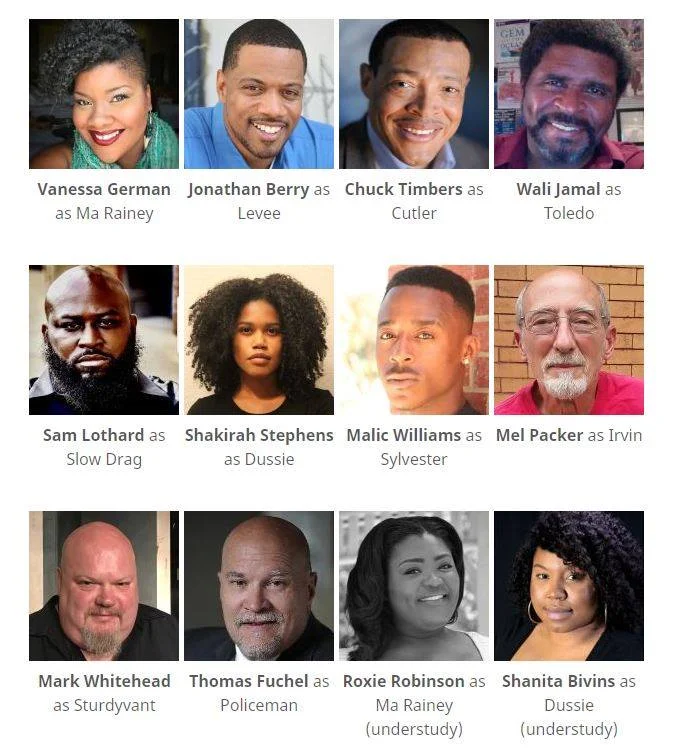Theater productions of August Wilson’s Ma Rainey’s Black Bottom could portray Ma Rainey as this tough woman to not be messed with—as the lines offer. The play allows for the obvious racist comments from Rainey’s record producer and manager who, ultimately, have to “give in” to Rainey’s demands, and it allows for the long-time musicians in her band to tell a newcomer (Levee) that “Ma decides” what versions of the songs they’ll play: she’s the boss of this recording, don’t mess with her.
But performance artist Vanessa German brings out the subtleties in Wilson’s script. Ma Rainey, in this brief episode of her studio recording, is disrespected by her manager, her producer, the members of her band, and her lover: Each one—at some point of the recording—treats her as if she doesn’t know what she’s doing.
Furthermore, while Levee’s story clearly takes front and center—upstaging the featured woman character—director Mark Clayton Southers expertly draws out the various stories, which is fundamental in all of Wilson’s scripts. Rainey’s & Levee’s stories take place in different spaces of the stage and, depending on where you’re seated, different parts of their stories will jump to the fore. When Rainey and Levee are on the same side of the stage, however, Ma stands in front and doesn’t look back.
Vanessa German knows that Ma knows what she’s created as an artist, and that Ma knows how to stay the course.
Come see this superb production by Pittsburgh Playwrights Theatre Company.
Here’s an interview with Vanessa German on how she prepared for this role.
More on Ma Rainey.
Mark Clayton Southers, founder and artistic director of Pittsburgh Playwrights, playwright, & director!
ALL-STAR CAST! (Photo credit: Pittsburgh Playwrights Theatre Co.)


